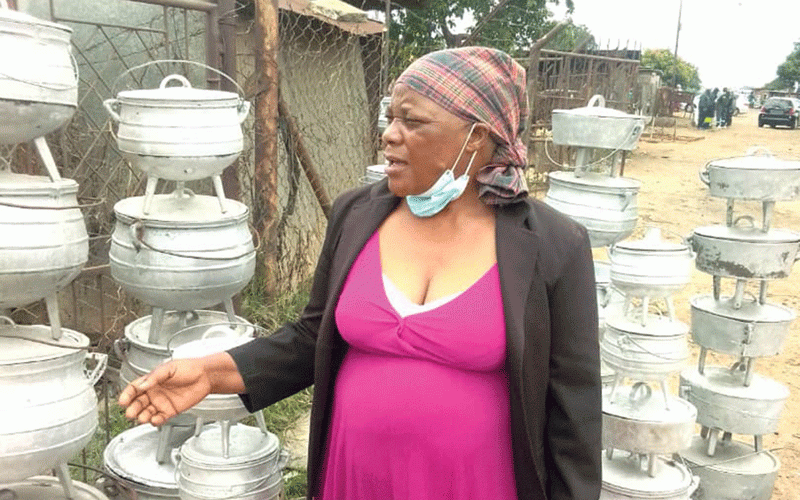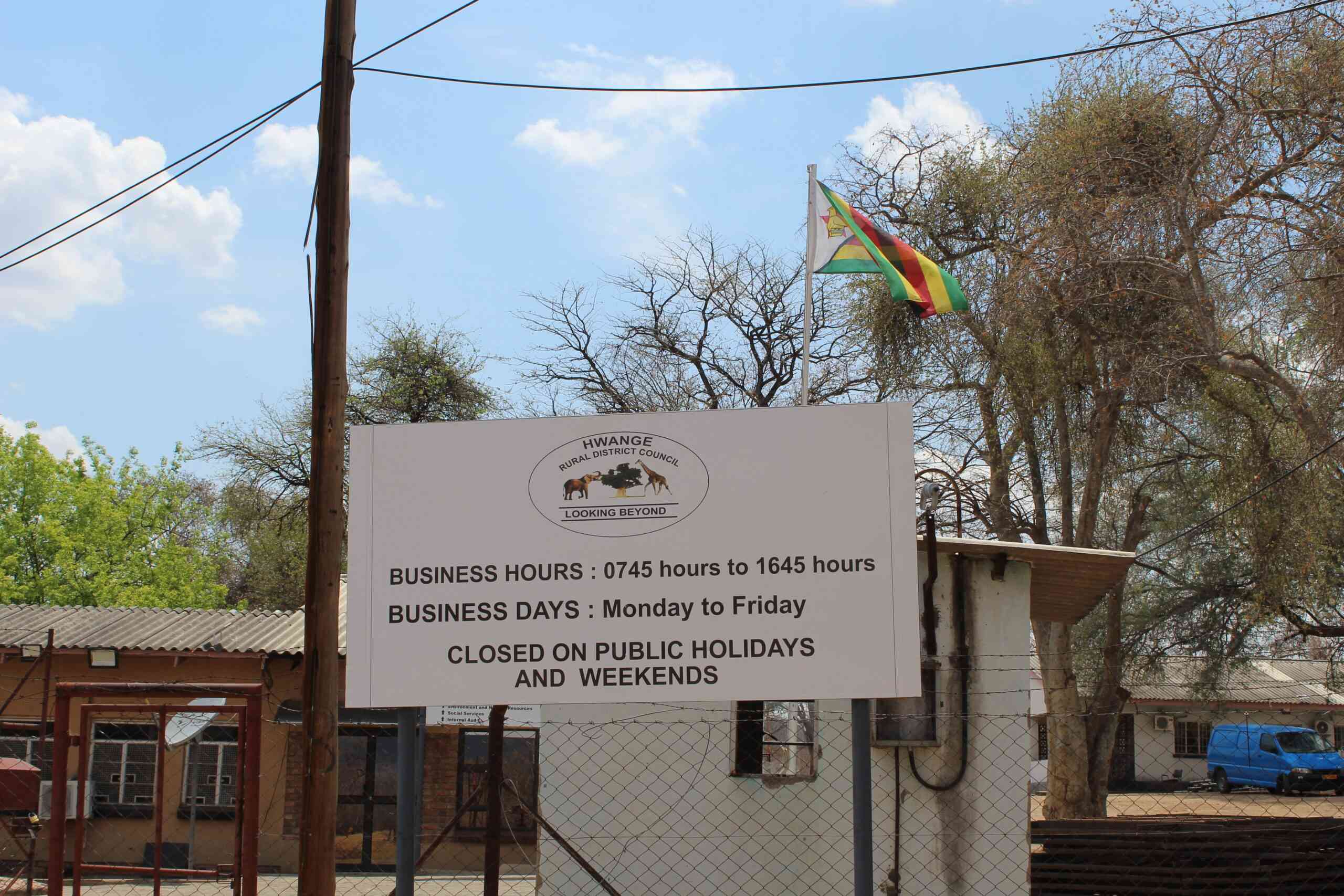
The weight of the world felt as if it was crushing Nyemudzai Jakiti, a single mother in Masvingo, when she found herself out of a job after her employer closed shop in 2018.
Faced with the burden of taking care of her child, paying rent, buying food and looking after her aging parents, Jakiti (31), a bookkeeper by profession, turned to picking up litter and selling it.
“It was a tough decision to start picking up waste. Imagine, I used to work in an air-conditioned office, and suddenly I found myself scavenging for plastic waste,” she says.
After a few years, the startup plastic recycling company to which she sold plastic waste eventually employed her.
“I am now back doing office work as an administrator here. It feels like a fairy tale from being in the office, to picking trash and back to the office again,” Jakiti told Mongabay from her office at the plastic recycling facility where she now works, Stable Packaging.
Jakiti is not the only one who discovered money in waste.
Across the country and social classes, recycling trash by picking it up and selling it or buying it and converting it into profitable materials has becoming a booming business.
According to Zimbabwe’s Environmental Management Agency (EMA) national spokesperson Joyce Chapungu, community-based recycling organisations that handpick litter quadrupled in the last few years, increasing from 50 in 2019 to 200 in 2023, as locals are enticed by the cash incentives in a country whose currency is taking a nose dive while many services and commodities surge.
Employment stood at nearly 20%, revealed the country’s latest labour survey in 2021.
Entangled in an economic crisis and affected by inflation standing at 175%, many aren’t picky about which jobs or side incomes they take on, Chapungu told Mongabay.
Some people picking waste can make over US$150 per month, similar to the average salary of an employee working at a small business.
In response to the increased supply in plastic waste waiting to be sold and the opportunity to sell new commodities made from low-cost materials, plastic recycling companies, which buy the waste and process it, also increased their presence from 49 in 2019, to 71 countrywide in 2023.
“Recycling has of late been a lucrative venture for many in the country, from the waste pickers to recycling companies,” she said.
Zimbabwe struggles with its plastic waste found in rivers, streets and open areas. In cities and towns, uncollected plastic waste is a contributor to water and air pollution when locals and waste incinerators burn plastic waste at dumpsites.
The waste also clogs sewers, causes sewer lines to burst and spills into freshwater ecosystems.
This waste later breaks down into microplastics — plastic fragments smaller than 5 millimeters (about a fifth of an inch) but bigger than one micron — found in the soil, sediments, streams and lakes.
Microplastics can also enter the human diet by traveling up the food chain via marine animals that people consume. In an extreme case, eight elephants died in the resort city of Victoria Falls in 2016 from eating plastic waste at the town’s dumpsite.
The country generates 1.65 million metric tons of waste annually, according to a 2014 survey by the Institute of Environmental Studies, the latest available.
Of this waste, 18% is plastic. And, according to the EMA, with the boom in recycling organisations, 15% of all plastic waste generated in the country annually is now being picked up.
The Masvingo-based plastic waste processing firm where Jakiti works, Stable Packaging, recycles around 15 metric tonnes of non-biodegradable plastic waste per month.
Established in 2011, the firm started off with three employees and now has 21 full-time workers, according to the founder and managing director, Farai Marecha.
“We work with the community as it is the one that picks waste and sells it to us. We pay between 35 to 40 US cents per kilogramme.
Some families pick 500 kg of waste per month,” he says. “This has helped reduce plastic waste in the region. There are a lot of people, especially women, who see that trash can be turned into cash.”
Stable Packaging runs two extrusion machines at its plant that recycles plastic waste to make irrigation pipes, plastic wrap, bin liners, planter bags and bags for animal feed, among other things.
Though these plastic recycling facilities are privately owned, Chapungu says some get loans from the government to increase production while also receiving support and environmental stewardship awards from the EMA.
In some cases, the EMA looks for markets for the community recycling clubs to sell their wares.
Some processing facilities, like the Masvingo Urban Recycling Club, are provided with transportation to deliver their recycled materials.
Florence Chiwera (60), who founded the Masvingo Urban Recycling Club in 2008, is from one of Masvingo city’s low to middle income suburbs.
She started picking litter and burning it with a few other unemployed housewives.
It only began as a way to complement the local authority’s efforts to clean the city when the country lacked the funds, struggled with hyperinflation and dealt with a cholera outbreak.
However, it soon turned into a way to generate income.
“In 2010, we heard of a recycling company from the capital, Harare, that bought litter, so we collected and baled the plastic waste so that they would come and buy from us,” she told Mongabay.
“That is when others who were originally not interested in picking litter got motivated, and our numbers grew.”
Two years later, they started making homemade aluminum pots from the waste instead of just selling it.
Another two years later, they ventured into making interlocking bricks from plastic waste mixed with sand.
“We realised it made more money to recycle on our own. Right now, we registered Masvingo Urban Recycling Club as a cooperative and we’re overwhelmed by demand for the bricks,” she said.
“Originally a housewife who waited on her husband’s pay, she now brings in US$200-US$350 per month through the business, equal to the average salary paid to civil servants in the country.
Chiwera melts the plastics in an oven that serves as the brick-laying place and bakes it with sand to produce strong interlocking bricks used in construction.
They sell two bricks for a dollar — double the price of a cement brick — while aluminum pots start at US$13, depending on the size.
Research suggests that plastic recycling facilities could also be contributing to pollution in their own way. According to a study in the Journal of Hazardous Materials Advances, these facilities could be releasing wastewater packed with billions of tiny plastic particles that their filtration systems can’t catch, contributing to the pollution of waterways and endangering human health.
The EMA says it monitors the activities of plastic recycling facilities to avoid the release of microplastics into the environment.
According to Chapungu, all facilities follow environmental standards for processing plastic and none has yet been found breaching these standards.
“We check on their operations periodically,” Chapungu said. “There are hefty fines for defaulters.”
Companies like Stable Packaging assure they recycle and clean the facilities’ wastewater to prevent the escape of microplastics into waterways.
They instead mix the tiny plastics with other crushed plastics and melt them in the recycling process, Marecha told Mongabay.
Like many other waste processing companies in the country, Stable Packaging also uses both chemical recycling and mechanical recycling.
At the moment, the EMA permits chemical recycling, also known as advanced recycling technologies, which uses heat or solvents to convert waste plastic into chemical feedstocks, like fuel and chemicals, which can potentially be further processed into new plastics.
At the moment, this recycling process has its own pollution problem by releasing large quantities of toxic and hazardous substances into the air and environment, according to a 2021 report by the Natural Resources Defense Council.
EMA is establishing a waste management plan, increasing the amount of recycling bins around the country, encouraging waste separation at the source and promoting the gradual phaseout of single-use plastic packaging through use of alternatives such as eco-bags, shopping bags and baskets.
“The government has already banned thin plastic and expanded polystyrene [a lightweight foam material] in an effort to reduce plastic pollution,” Chapungu said.
The EMA also fined entities — like the Masvingo City Council and one of the country’s biggest beverage manufacturers, Delta Beverages — in 2022 for polluting river ecosystems with sewer, plastic waste and hazardous chemicals.
Though community-based recycling organisations are helping reduce plastic waste pollution, the effort and government policy are still not enough to tackle the country’s growing plastic waste problem at its root.
The simple act of “recycling ourselves out of the crisis” will not solve the world’s plastic waste problem, say environmentalists at the United Nations Paris meeting on the plastics treaty.
The world currently produces nearly 400 million metric tonnes of plastic each year, but only about 9% is recycled.
They’re calling for businesses and consumers to reduce the materials we use and favor a circular economic model that aspires to zero waste. – Mongabay









